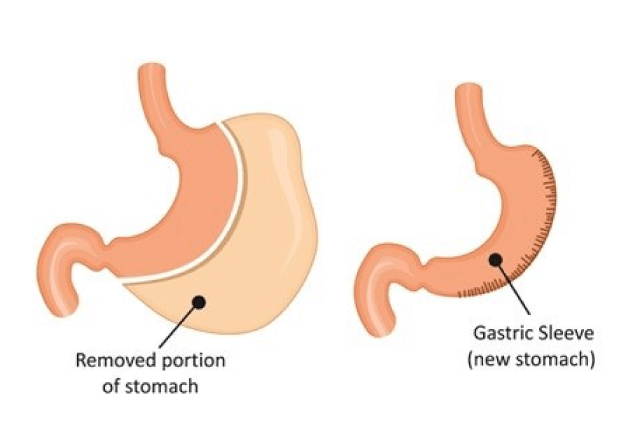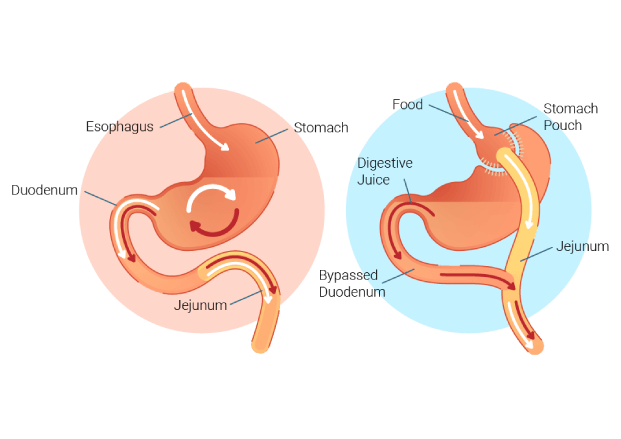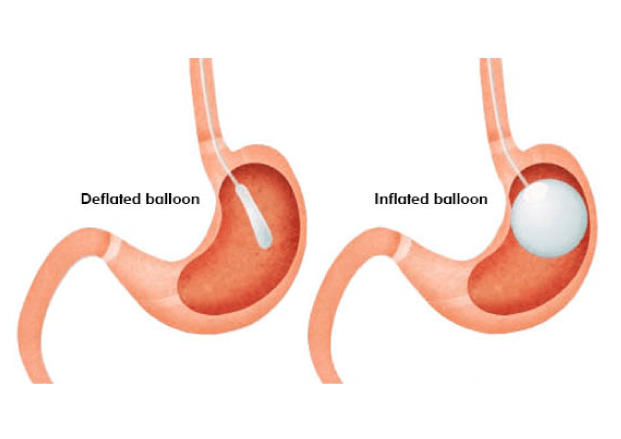
In the past two decades, the obesity rate has gradually increased all over the world. Hence, this ongoing rise results in a high level of obesity-related diseases like diabetes, high blood pressure, infertility… There is more than one solution to deal with obesity; Bariatric surgery is one of them. Also known as weight loss surgery, bariatric surgery is a surgical procedure for weight loss that aims to alter the capacity of the stomach or reduce the volume of food absorbed. In this article, we are going to provide you with a deeper understanding of the BMI, bariatric surgery’s best candidate, techniques used, preoperative, and postoperative phases.
The Body Mass Index (BMI) is the only index approved by the World Health Organization (WHO) to measure an individual's weight and eventually its potential health risks. This index enables you to identify whether you are underweight, overweight or obese. If your BMI is over 40 then you are considered as severely, morbidly, or massively obese.
Over and above your desire of losing weight, there are some criteria that you must fulfil. You can undergo the procedure if you have:
extra 100lbs (approx 45kg) of your ideal weight
BMI > 35 with comorbidity (mobility, diabetes, high cholesterol) or BMI>40
tried, without success, to lose weight following several months of intensive medical care (including diet and physical activity)
no psychological contraindications
Once the above-mentioned criteria are met, your medical record is completed, and you are physically and psychologically ready to embark on this journey, it is time to learn more about weight loss techniques.
1. Vertical Sleeve Gastrectomy (VSG):
Gastric Sleeve Gastrectomy (VSG) targets patients with BMI>35 and aims to reduce the feeling of hunger and eventually about 70% of the excess weight. To elaborate, this solution consists of dividing the stomach into two parts. The smaller part (on the left) of the stomach becomes the new stomach and the bigger part (on the right) will be extracted from the body.
2. Gastric Bypass or Rou-en-Y:
Gastric Bypass targets patients with BMI>35 and helps get rid of up to 70% of the excess weight. To elaborate, This technique aims to divide the stomach into two parts; the smaller one that is connected with the oesophagus becomes the new stomach, and the bigger one that is connected to the duodenum will be eliminated. The eliminated part will stay inside the body but its only function will be producing gastric juice.
3. Intragastric Balloon:
Intragastric balloon procedure aims to place a balloon filled with air or saline (saltwater) into the stomach to reduce the amount of food absorbed. This balloon must be removed every six months. To elaborate, this procedure helps lose about 10% of your excess weight If your BIMI is between 30 and 34.9.
The decision of choosing the appropriate technique depends on the multidisciplinary team; a bariatric surgeon, dietitian, psychologist, and anaesthetist.
Wondering what happens during the procedure and what you need to do preceding it? Scroll down to learn more!
Before surgery, a primary consultation with a surgeon is a must to both examine your body and identify whether you have any operation contraindications or not. If you are a woman planning to get pregnant in the next couple of months, then you cannot get pregnant within the first 12 months to two years following surgery.
Following weight loss surgery, you can resume work in a couple of days as the recovery time is very short and you need to stay only 2 to 3 days at the clinic. Furthermore, you need to keep eating healthy, monitoring your weight progress, and most importantly avoiding weight regain. During the next few days or weeks, you will gradually become more mobile, take far fewer medications, and have a much longer time with your family.
All surgeries can guarantee major benefits, however, with these benefits come risks that you need to be aware of.
Weight loss surgery benefits are:
lose around 60 to 70% of your excess weight
feel full all the time
resume your daily activities in a very short time
Weight loss surgery risks are:
staple line leak
usual anaesthesia complications
weight regain
In a nutshell, weight loss surgery helped thousands of people to change their lives and have a healthier life by taking fewer medications than before.
Have you ever been through this procedure! If yes, you can share with us your experience through the comment section below! If not, would you take the next step to get rid of your excess weight and live a healthier life?
Body Mass Index (BMI)
Best Candidate



Preoperative Phase
Postoperative Phase
Benefits Vs. Risk





